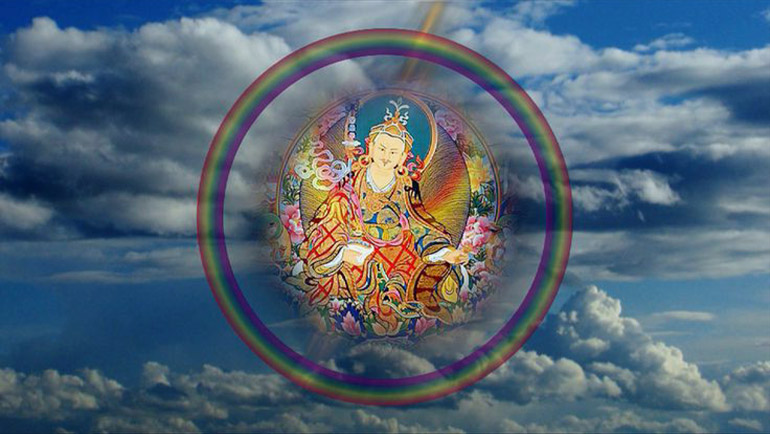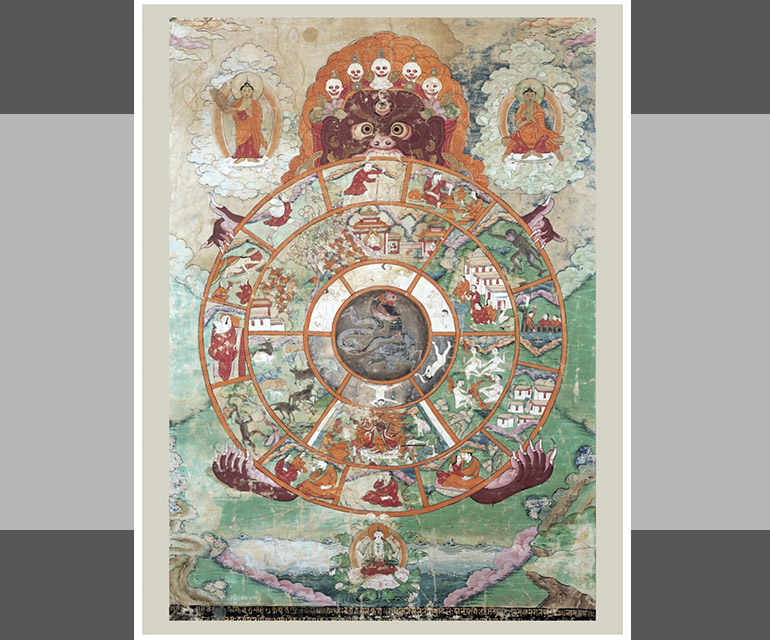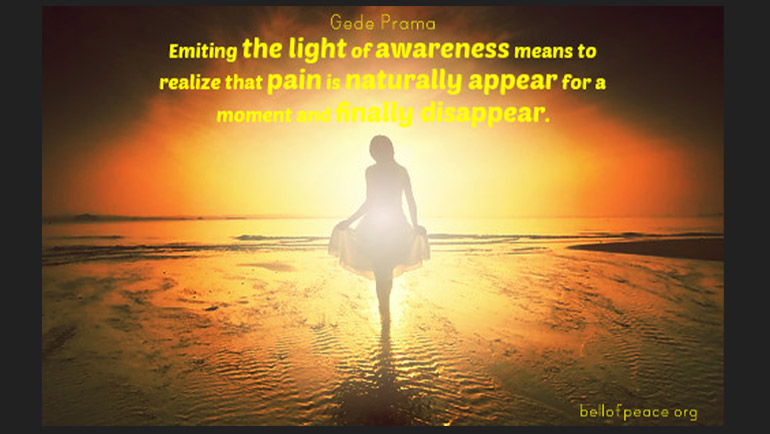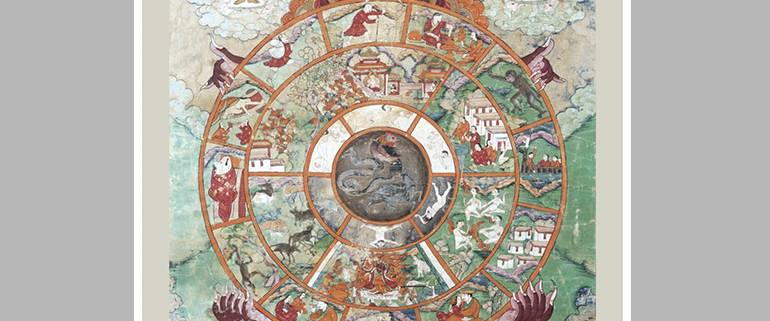The Original Tantra, Part 3
This is the third and the last part of the long article [The Original Tantra] . I have translated his article from Finnish. The article is based on the book Tantra Illuminated by Christoper Wallis.
You can read the 1st part here and the 2nd part here.
In non-dualistic Shaiva tantra, like in the Buddhist tradition, the cause of suffering is considered to be an erroneous view of our own nature. Or can we say that in that view of ourselves we consider all and everything?
You can look at it for a moment: try to create a picture of yourself in your mind. Does it include how you keep your blood running, how you use oxygen to convert nutrients to energy, or how you move your hands by sending signals from your brain through the nerves? Often our picture of ourselves does not include our relationship to our environment, does not include those relations that make our existence possible from moment to moment.
How does this erroneous view create suffering? This is a very delicate issue. I will start by exploring how our view of the world affects our internal experiences. If we feel separate from the rest of the creation, this has its consequences. We then position ourselves against nature, as if we and nature oppose each other. Action that stems from the separation often leads to actions that create even more separation, and our relation to our environment gets fragmented.
In our Western culture this fragmentation is really predominant. Many of us feel separate from the cosmos, nature, other people, even ourselves. The world is thus experienced as an alien place where we spend a moment in quiet despair, waiting for inevitable death, and in the meantime everything that happens is without deeper meaning – just random events, subatomic particles moving in emptiness.
Non-dualistic views of the world can alter the entire network of our inner conceptions that are structuring our experience. We belong to this world in the same manner as apples belong to the apple tree. The apples are nothing separate from the tree, they are something that the tree creates. In the same way, we are something that the Universe creates. Or we can think of the sea and the waves on it. Can we separate the waves from the ocean (by any other means than words)? It is clear that the sea waves. In a similar manner, our existence waves, and when it waves, it creates various forms, and at this moment it waves as us, you and me.
Because in non-dualism the subject and object are not separated, it’s clear that we can only be a process of the universe. Birth and death are continuous phases in this process, and we experience this world through different experiencers, in different times and places, in joy and in sorrow, aware and unaware, and in each of these forms we always are the same One.
The Secret of Immortality
This insight also connects to the secret of immortality. Death touches our individual forms, but that which we are in our deepest level is beyond birth and death. We are a space in which the entire Universe can be born and can die, and we do not lose anything there, nor do we gain anything additional. These forms that we inhabit now have existed as a potential since the beginning of time. Like silence always contains a possibility that your favourite piece of music can play in it. And exactly in the same manner as sound always return back to silence, we also return to where we came from. With that we give space to the new emerging forms, of which everyone is the same “I”.

If we look at life from this perspective, we can get rid of a certain kind of seriousness. On a spiritual path we often seek experiences of God in order to realize something, to reach a goal of some kind. In this view we can think that God is living the human experience just for the sake of experiencing it. There’s no goal, as life is a play where this “Is-ness” forgets its true nature. It’s a bit like when we go to movies to see stories, we can get absorbed in the drama we see, experience the stories of other people as true. When the movie ends, we wake up to notice that it was just a story. We can see the Universe as a story, a play of creation, where God has become so absorbed in it that it can’t remember itself any longer.
To forget oneself and one’s own eternity makes growth and development possible, for the perfect Absolute can’t grow. By becoming a limited being, the play of creation can eternally grow toward the Absolute.
To this view belongs the greatest freedom. If all the forms are the play of creation, then even those that are considered the lowest belong to them. Every thief, murderer and criminal are in reality the same One, which plays a really hard game, having totally forgotten their true nature. On the deepest level they can’t become anything better, because they already are the Absolute.
From the human perspective, we can consider that certain kinds of games could be skipped, as they are not fun nor rewarding. When our awareness grows, we can start to choose what kind of life we would like to create for ourselves. What is important for us, what kind of game do we want to play here?
Wars and extreme economic competition present a really serious picture of the world, as does a religion that is against life. We can take a lighter view on this world and make our existence a creative play. This results in a tantric secret: then life becomes really joyful!
Escaping the Wheel of Reincarnation
Even in Eastern philosophies, the world has been seen through gloomy lenses. In the peninsula of India, the predominant thought was that humans are tied to the wheel of reincarnation, from suffering to suffering without ending. The goal of spiritual development was enlightenment, which would stop the wheel of suffering. In Buddhism, enlightenment was thought to be a realization of one’s own nature. Non-dualistic Shaiva Tantra shares this thought, but how would this insight help someone to escape the wheel of reincarnation?

My interpretation, shared by many teachers as well, is simply that the idea of reincarnation was a fallacy. An insight simply corrects this fallacy. From the non-dualistic perspective selfness is not metaphysically true, it does not continue to the new reincarnation. Because this selfness is ostensible, it only represents a certain way to experience the world. The world polarizes itself to subject and object, but this separation is not real. It is, however, very important in our everyday life and it’s great that we have developed cognitive structures such as ego.
Ego is often seen as something bad, but we can think of it so that the experience of the ego makes it possible for me to experience you and for you to experience me. Thus it facilitates the experience of being in a relation to someone (or something). The apex of being in relation is love. I think this shows that it was worthwhile to create the world. Through it the entire Universe can experience itself in its vastness, for it then contrasts itself through the small human ego. Ego is the instrument of being in connection. Unfortunately it does not function in an optimal way in our society, because we have forgotten the Unity that lies behind all the apparent separateness.
Even if the idea of non-dualism is quite easy to understand, the challenge lies in the fact that the dualistic view is very deep-rooted in our thoughts. There’s an anecdote that can illustrate this. When Joseph Campbell was in India, he ended up in an ashram of one of the biggest gurus at the time. When he was listening to a lecture of Brahman, reality, and Maya, illusion, the world of phenomena, Campbell asked isn’t that world of phenomena also Brahman, if Brahman is all that exists? Astonished guru represented Campbell as a great rishi, wise seer, to his students and asked to explain this to his students. If a westerner can grasp this, why wouldn’t his students?
The Nature of Reality
In tantric philosophy, metaphysics and phenomenology are not usually separated. Metaphysics explores and describes the general structure of reality, what reality itself is. Phenomenology explores phenomena, how we experience the world through our mind and our senses. If we do not distinguish these two, it could lead to a situation where we can’t distinguish our experience of reality from what reality is or could be beyond our experience.
It is somewhat confusing to say that reality is without any attributes, and then call it “The Light of Awareness” – which clearly is a name for a certain attribute. This is relevant if we ponder if someone who has had a great revelation becomes something else, reached something, “became God” or simply realized something of himself. By this I mean if someone experiences becoming one with God (phenomenal level) it does not imply that he would actually have become one with God (metaphysical level), at least from a non-dualist view, as it would imply that it was not always so.

from www.bellofpeace.org
I can clarify this with a parable. A worm probably experiences his world very different from ours. If the worm could make metaphysical interpretations from his experiences of the structure of reality, they could differ a lot from our interpretations. Or if the development of the human consciousness continues for millions of years, there’s no reason to expect that their way of understanding spiritual realizations would match our views now.
I want to say that the non-dualistic picture of reality is still a view of a kind, and it should be understood as such. It is a map which can clarify and rectify distorted thought constructs about reality. When the non-dualistic world-view has been realized well enough, we can let go of it and trust the intelligence that lives in every moment and that works independent of any thought constructs. The non-dualistic philosophy can be a great help in liberating us from thought constructs. When I say get free from thought constructs, I mean we will then understand them as maps with which we structure our world. A liberated person does not mix reality with these maps. Actually only then he can use the thought constructs in a sensible way, because he can see where they can be applied and where the map is not valid any more.
Spiritual paths are often presented as if they are a universal arch of development a human needs to walk through, where you come upon an endpoint and there is oneness and a realization of the reality. I would like to convey the idea that from a non-dualistic perspective all possible ways to live one’s own life are – in theory – equivalents. If each of us is a God in a form or another, dancing our own dances, forgetting our true nature, can we really evaluate other peoples’ ways to live in any other way but through our human standards?
I think that conscious life is worth pursuing, because actually only conscious, experienced life is life. If we choose to live, then the bowl of life should be enjoyed consciously and to the last drop. I don’t feel that any sacred scripture fits as an authority to dictate why this kind of choice should be made. Love towards life chooses for us, if we give it space.
Ego or No Ego?
In the yoga tradition, it is often seen as crucial to free ourselves from the grip of the ego, from the illusion of separateness, and to gain Oneness. I think Zen Buddhism and Tantric philosophy differ remarkably from this thought. Reality works so that when it separates itself as beings, it is creating phenomenal borders between them, forgetting itself, and that is an intrinsic part of creating the world and the dance of existence. So it’s not something that we would need to free ourselves from.
If the Tantric philosophy accepts the world and humans in their entirety, naturally it needs to accept the ego as well, the experience of separateness. I think there lies the greatest challenge of a spiritual path: to accept the separateness that creates suffering, and to acknowledge that however separate we feel ourselves, it is not true, it doesn’t need to be taken so seriously. Actually only that kind of person is really free from ego. I mean, for example someone who is not burdened by worries is free from worries. It means that the person does not take these worries so seriously. In a similar manner, someone who is able to let their ego be – still being aware of it – can be free of the ego. Then this person can direct their attention towards the world, be absorbed in observing, doing, reflecting, whatever is important in the moment. He himself is not in the center of their attention any longer, or rather, the pictures of himself, but the non-conceptual reality that is experienced through senses and body-mind is now at the center, structured by reflection.
Then we can posit a question: how can you live life being aware of the oneness of the Universe and still simultaneously experience it in a human way? In some moments in our lives we can really experience being one with everything, fantastic moments of oneness and cosmic love, but the value of those moments is eventually in that how they modify the way we act in the world when the limits of our selfness re-appear. Therefore, no one experience will make us free. We need realization, an interpretation of the experience from a right perspective. Then we can become free, and what we actually get free from is an erroneous thought construct. Because these thought constructs modify the way we structure our experiences, that kind of realization can change how we see our lives.
Human behavior, morality and ideas about the good life are often conditioned by the mainstream culture or religion, so that our own individual experience of the truth, what is true for us in our life, can be put down. With the non-dualistic picture, this kind of conditioning can be dismantled and we can have the chance to get in touch with our true self, beyond all this conditioning. How can we live if we are not given any directions, if everything is allowed?
When the natural, true self becomes brighter, the answer to that question will be unique, according to each individual’s potential, skills, talents and calling. Nobody can give it from the outside. Like a seed of a spruce contains all the potential of spruce-ness, we contain a potential which we can actualize in this life. When limiting thought constructs are not on the way of our authentic life, we can keep on striding on the path of constant growth.
Then we can let go of even the non-dualistic view, or at least understand it as being only a view. Buddha said that Buddhism is like a raft, once you get to the other shore, you can leave it behind; it does not make sense to carry the raft.
Often the last thought we hang on to before our liberation is the thought about liberation.
Warmly,
Mark




